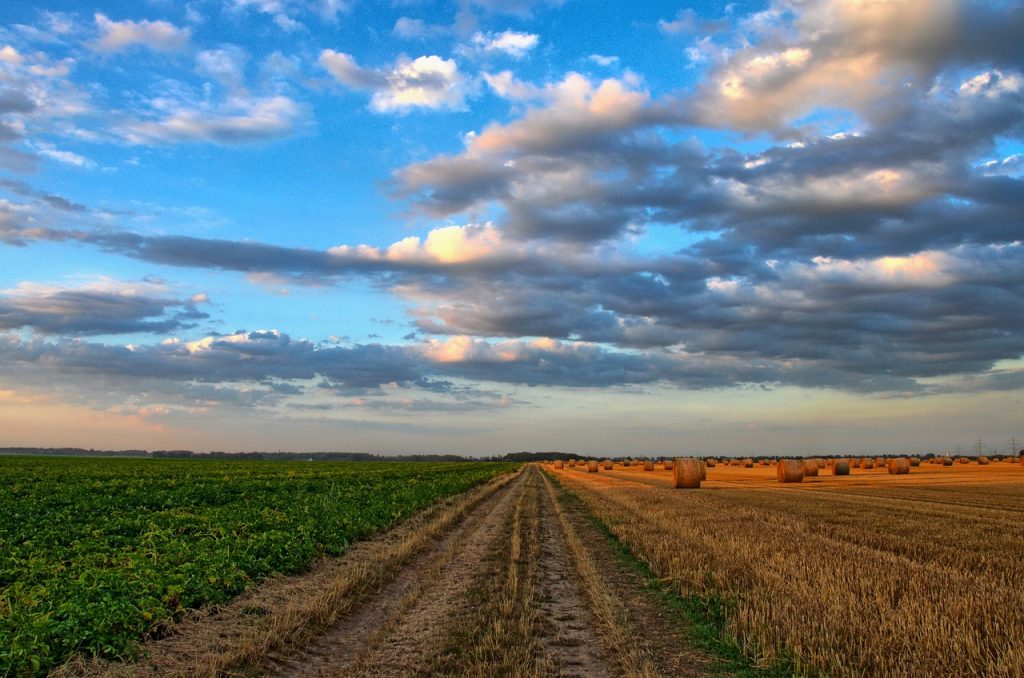Are you a Texas high school senior passionate about agriculture and determined to pursue a career in this dynamic field and looking for support? Look no further than Capital Farm Credit Scholarships.
Capital Farm Credit is a leading agricultural lender in the state, offering valuable scholarships to help you achieve your academic and professional goals.
This comprehensive guide peeks deep into Capital Farm Credit scholarships, providing you with everything you need to know to apply successfully and secure your future in agriculture. Before we go into the scholarship, it’s important you know the mission of CFC, what agriculture means to the legacy of them and the state of Texas as a whole to better grasp while they’re being so helpful.

Capital Farm Credit: An Investment into the Future of Texas Agriculture
Capital Farm Credit understands the vital role agriculture plays in Texas’s economy and prosperity. According to a 2013 report, Texas Agriculture Facts, released by Commissioner Todd Staples | Texas Department of Agriculture, agriculture employs one out of every seven working texans.
Texas also accounts for 13% of total calves and cattles reared in the US, which stands out as the highest.
Recognizing the need to foster the next generation of agricultural leaders, they offer a variety of scholarship programs aimed at supporting high school seniors like you. These scholarships are not just financial aid; they are investments in the future of Texas agriculture, ensuring its continued growth and innovation.
To achieve these objectives, they’ve developed several types of farm credit scholarship programs. It’s important you know the differences between these programs in order to ascertain which is best for you. Let’s get into it.
Types of Capital Farm Credit Scholarships
Capital Farm Credit offers two primary scholarship programs:
Youth Scholarships: These $1,000 scholarships are awarded to graduating high school seniors across their market territories who plan to pursue an agricultural-related field at an accredited vocational or technical school, college, or university. Applications are open until March 29, 2024, and winners are announced in April. Take note of the deadline.
Ag Student of the Week Program: This unique program recognizes outstanding high school students actively involved in agriculture. Winners receive $250 scholarships, with the top regional winner earning an additional $1,000, and the overall program winner receiving a further $1,000. Applications open October 1, 2023, and run through March 31, 2024.
Eligibility Requirements for Capital Farm Credit
To be eligible for Capital Farm Credit scholarships, you must:
Be a graduating high school senior in Texas.
Plan to attend an accredited vocational or technical school, college, or university.
Maintain full-time student status.
Demonstrate a strong academic record.
Be actively involved in agriculture (for the Ag Student of the Week program).

Capital Farm Credit Scholarship Application Process and Tips for Success
Now we know the two scholarship programmes offered by Capital Farm Credit, let’s dive into their application procedures and also the tips you can use to increase your chances of getting success at your first application.
Capital Farm Credit Youth Scholarship Program Application Process
Applying for Capital Farm Credit scholarships is straightforward and can be done online.
Apply here and completely fill out the application on the webpage.
The application typically includes essay questions, recent high school transcripts, and 3 letters of recommendation.
Checkout the Tips for success section to get tips on how to increase your chances of success.
Deadline for the Capital Farm Credit Youth Scholarship Program
- March 29, 2024
Capital Farm Credit Ag Student of the Week Program Application Process
To apply, fill out the application form provided completely.
Provide all information about yourself as requested by the organisation.
Check the Tips for success section below to get tips on how to increase your capital farm credit chances of success.
Deadline for the Capital Farm Credit Ag Student of the Week Program
- March 31, 2024
Success Tips for Capital Farm Credit Scholarships, 2024
Highlight your passion for agriculture: Showcase your genuine interest and commitment to the field through your essays and activities.
Demonstrate academic excellence: Maintain a strong GPA and provide evidence of your academic achievements.
Get involved in your community: Participate in agricultural clubs, organizations, or projects to demonstrate your leadership and engagement.
Seek strong letters of recommendation: Ask teachers, mentors, or agricultural professionals who know you well to write compelling letters on your behalf.
Proofread carefully: Ensure your application is free of typos and grammatical errors.
Other Agricultural Scholarship Programmes You Should Checkout
To learn more about Capital Farm Credit scholarships and explore other agricultural scholarship opportunities, check out these valuable resources:

5 Things to Avoid in Your Capital Farm Credit Application
Before going over to initiate any form of application on Capital Farm Scholarship’s website, it’s important you read this for your own benefits.
Let’s take a look at the hidden landmines that could sabotage your scholarship dreams. SO don’t be scared, you should only be if you won’t be following everything highlighted here and the tips book. Let’s get to it!
Misreading the Essay Questions
Imagine pouring your heart and soul into an essay about sustainable farming practices, only to discover you were supposed to write about overcoming personal challenges! Yikes. Capital Farm Credit scholarships often have multiple essay prompts with specific themes and requirements. Don’t fall victim to a prompt misinterpretation trap.
Tips:
Read, then reread, then read again: Seriously, these questions are your mission objectives. Treat them with the respect they deserve.
Underline keywords and identify key themes: What’s the essay really asking you to showcase?
Consult scholarship resources: The Capital Farm Credit website and even past scholarship recipient interviews can offer valuable insights into essay expectations.
Forgetting the “Show, Don’t Tell” law in Your Essay
“I’m passionate about agriculture” is a perfectly nice sentence. But in the scholarship essay, it’s about as exciting as watching paint dry. Remember, your essay is your chance to paint a vivid picture, not just list adjectives.
Tips:
Ditch the clichés and go straight into specifics: Describe a concrete experience that ignited your passion for agriculture. Did you volunteer at a local farm? Witness the impact of climate change on crops? Share those stories!
Use sensory details to bring your essay to life: Paint a picture of the sights, sounds, and smells of your agricultural experiences. Make the reader feel like they’re right there with you.
Show, don’t just tell, about your impact: Don’t just say you’re a leader; illustrate it with an anecdote about how you spearheaded a successful community garden project.
Forgetting to Connect Your Academic Achievements to Agriculture
So, you aced your calculus exam and wrote a killer term paper on Shakespeare. Fantastic! But how does that translate into your agricultural aspirations? Capital Farm Credit wants to see how your academic journey fuels your passion for the field.
Tips:
Highlight relevant coursework and projects: Did you analyze soil composition in your chemistry class? Did your history research focus on agricultural advancements through the ages? Weave these experiences into your narrative.
Demonstrate transferable skills: Show how your academic strengths, like critical thinking or problem-solving, can be applied to agricultural challenges.
Quantify your achievements: Did your research paper lead to a sustainable farming technique? Did your leadership skills result in a thriving school garden? Numbers talk, so use them!
Neglecting the importance of “Financial Need”
Capital Farm Credit understands the financial hurdles aspiring agriculturalists face. But simply stating “I need money for college” won’t win you any points. Be specific and transparent about your financial situation. They are not giving to show off that they’ve enough money to do that, and that’s why they give only to the agriculture enthusiast that is financially in need of it.
Tips:
Outline your financial burdens: Tuition fees, living expenses, and even unexpected costs like equipment or travel for internships, all play a role. Be honest and detailed.
Highlight any extenuating circumstances: Do you have family obligations or unexpected medical bills? Explain your situation with sensitivity and clarity.
Demonstrate responsible financial planning: Show how you’ve budgeted, sought scholarships, and explored other avenues to manage your finances.
Omitting Your Future Visions
Capital Farm Credit isn’t just investing in your education; they’re investing in the future of agriculture. So, paint a picture of that future! Show them how your scholarship will fuel your long-term goals and contributions to the field. They’re optimistic about who will become the next D-Bar farm in Texas.
Tips:
Articulate your specific career aspirations: Do you dream of owning your own farm? Developing innovative agricultural technologies? Be clear about your desired path.
Showcase your potential impact: Explain how your skills and knowledge will contribute to solving agricultural challenges or advancing the industry.
Connect your goals to Capital Farm Credit’s mission: Research their values and initiatives, and demonstrate how your aspirations align with theirs.
Remember, scholarship applications are your chance to stand out from the crowd. By defusing these hidden landmines that oppose your plans hinder your chances to succeed.

Conclusion
Capital Farm Credit scholarships are a valuable support, or rather we should call it a steppingstone for Texas high school seniors ready to start their agricultural journeys.
By leveraging this guide, understanding the program requirements, and showcasing your passion and commitment, you can increase your chances of securing these scholarships and cultivating a bright future in Texas agriculture.
Remember, the seeds you sow today will nourish the future of this vital industry. So, take the first step, apply for a Capital Farm Credit scholarship, and watch your agricultural dreams blossom! If you found this article helpful, other high school and agriculture enthusiast like you will love to read this also. Click on the share button below the FAQ section and share to your friends, family and loved ones.
Capital Farm Credits Scholarship Frequently Asked Questions
High school seniors graduating in the current year.
Full-time enrollment at an accredited vocational/technical school, college, or university.
Agricultural focus: Intended major in agriculture, ag-related field, or rural development.
Financial need considered, but not strictly required. High GPA or strong application can still win without demonstrated need.
Youth Scholarships: $1,000 awards statewide for qualified seniors (one per branch office).
Ag Student of the Week: Recognition & $1,000 scholarships for select students, with one overall winner receiving an additional $1,000.
Community Outreach Grants: Up to $1,000 for Texas FFA chapters and 4-H clubs for community improvement projects.
Youth Scholarships: Applications open early January, deadlines vary by branch office (contact yours for specifics). Submit online or at your local branch.
Ag Student of the Week: Nominations accepted throughout the school year, with final selection and scholarship awards in May. See website for nomination details.
Community Outreach Grants: Applications accepted until late February each year. Apply online through Capital Farm Credit website.
Highlight your passion for agriculture and career goals in the chosen field.
Demonstrate leadership and involvement in ag-related activities, clubs, or projects.
Show how the scholarship will help you achieve your educational and professional aspirations.
Proofread carefully for clarity and conciseness.
Scholarship recipients are notified within a few weeks of the deadline. Expect contact by phone or email from your local Capital Farm Credit branch.
Capital Farm Credit offers internships and employment opportunities in various agricultural fields.
They also host educational workshops and events for future agricultural.

Admin Very good post!